Youth For The Environment
On 5th June, World Environment Day, our colleague Astha Chand organised a cleanup of one of the viewpoints near Pauri town. She shares her experience below:
“As pahadis, we, take a lot of pride in the beauty of our hometowns. But we don’t seem ashamed of all the garbage that is spread across these mountains. Apparently, we just don’t care and chose to ignore this problem. People are not aware of their environmental responsibilities and have taken the gifts of nature for granted. Like every hill town, Pauri (Uttarakhand) does not have any proper waste disposal and management system. All the garbage that the municipality collects from across the town gets dumped on hillsides and burnt haphazardly. It is a very unpleasant sight to see beautiful hills getting turned into dumping grounds.
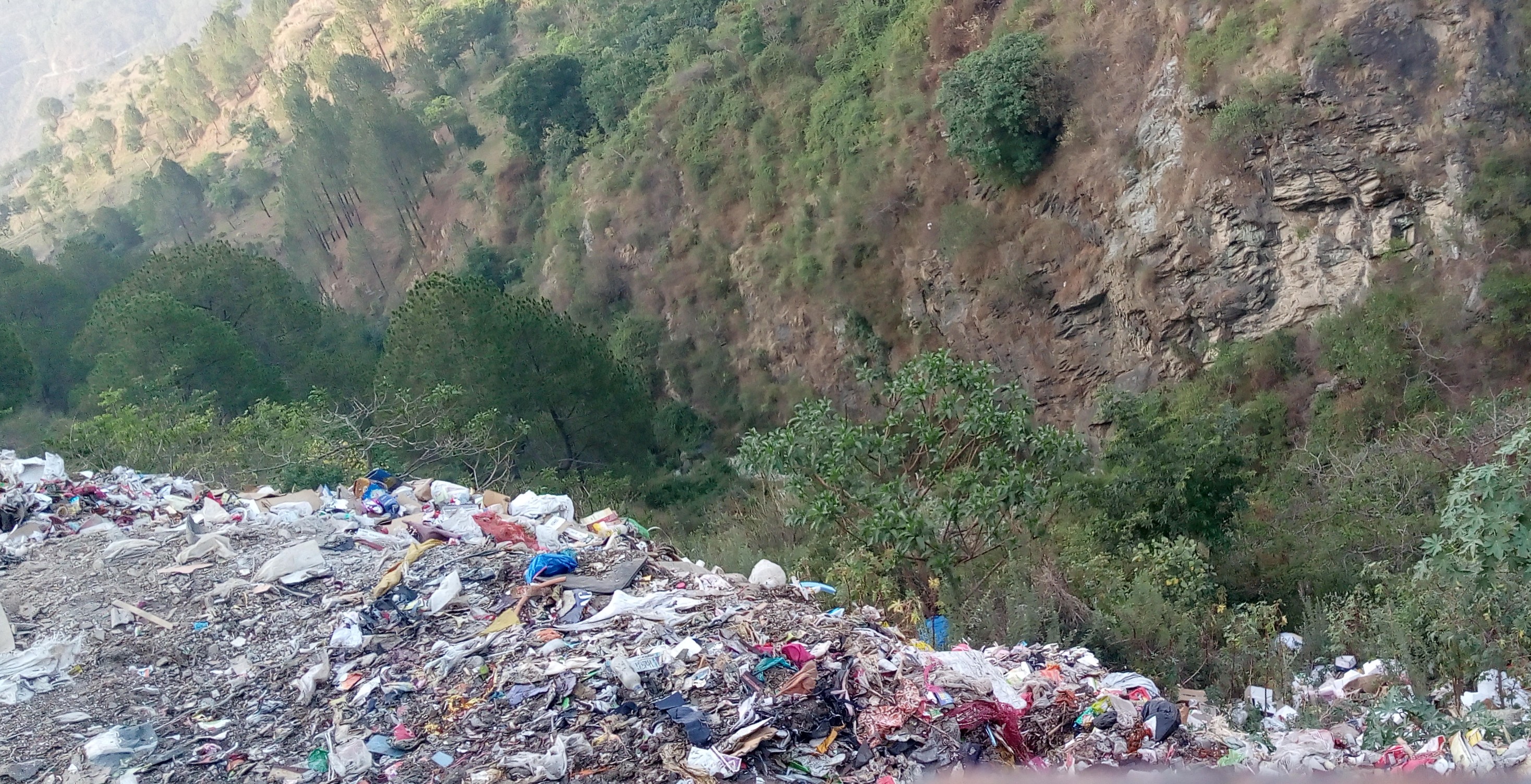
We took a small initiative to do something about the litter that just lies around. It was a tiny step but every little contribution matters. It started with posting a call for volunteers on social media for a cleanup activity scheduled on World Environment Day. A local page also shared the post and the response was better than expected. A number of young people showed interest and I managed to build a team of eight people. After some serious brainstorming, we decided to clean a viewpoint, a few km ahead of Mandakhal, on the outskirts of Pauri town.
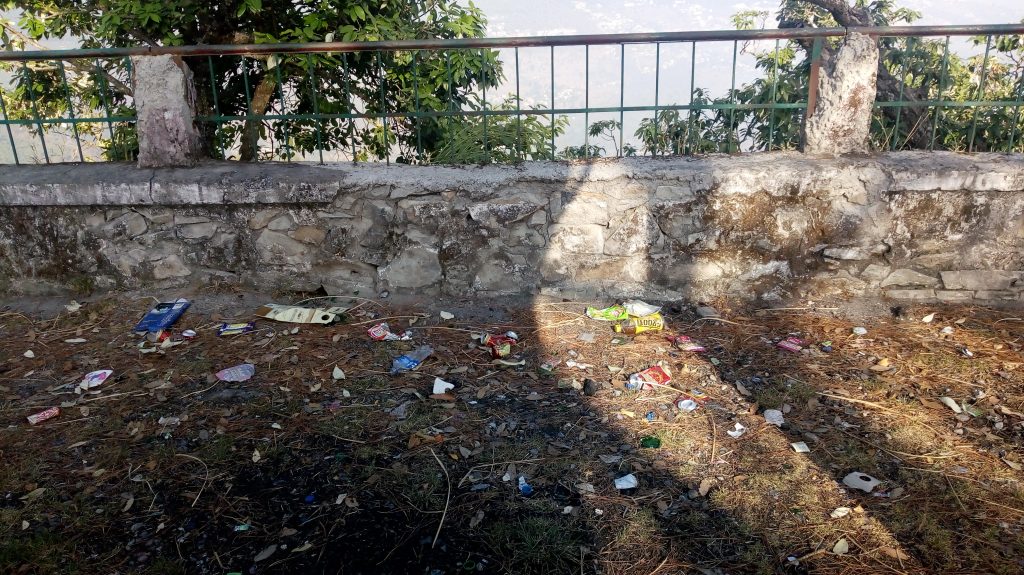
This is a picnic-cum-party spot for most of the town people and what we collected from there were the after-effects of those parties. There’s no count of the cigarette buds, beer cans, liquor bottles, plastic bottles, disposable glasses and plastic wrappers that we picked up. Since there is no system for waste management in Pauri, we gave the tin and glass to a scrap dealer but had to, unfortunately, burn the plastic since collecting the waste from one place and simply dumping it to another made no sense.
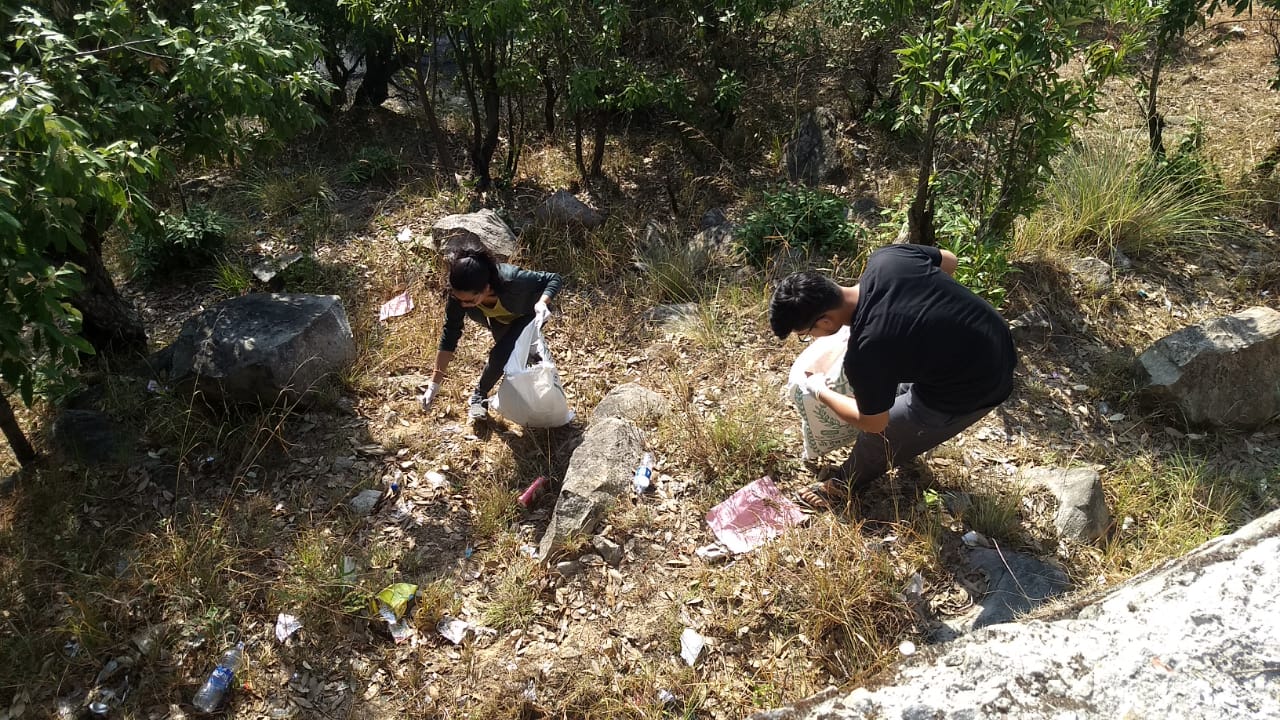
It was heartwarming to see such enthusiasm and a sense of environmental responsibility in these young people. We pulled this off without any support from the administration or any NGOs.
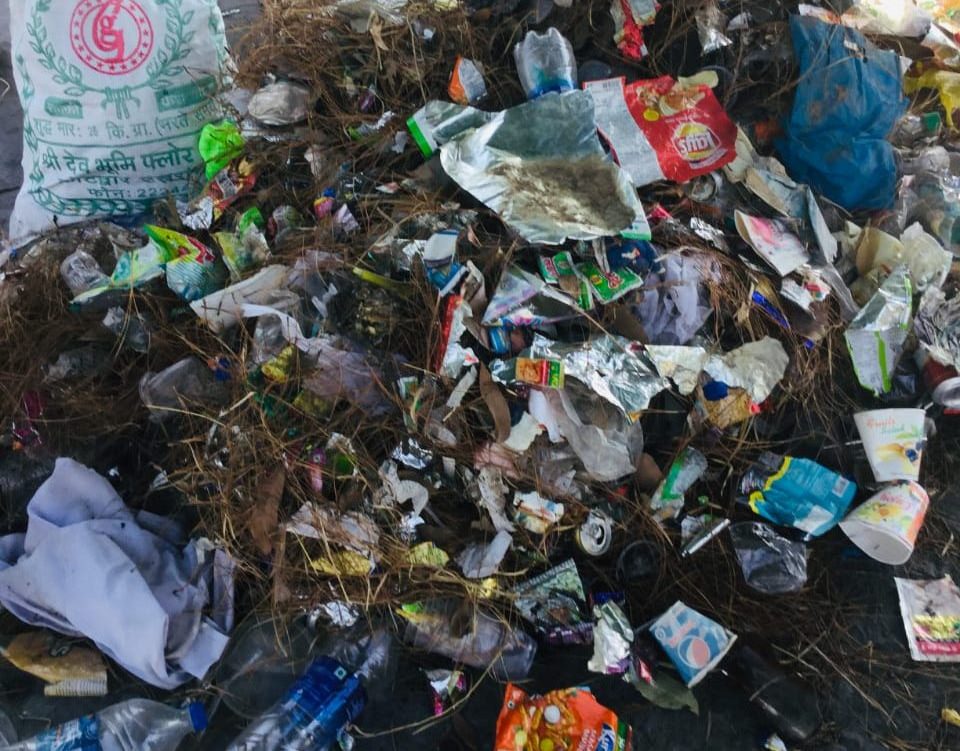
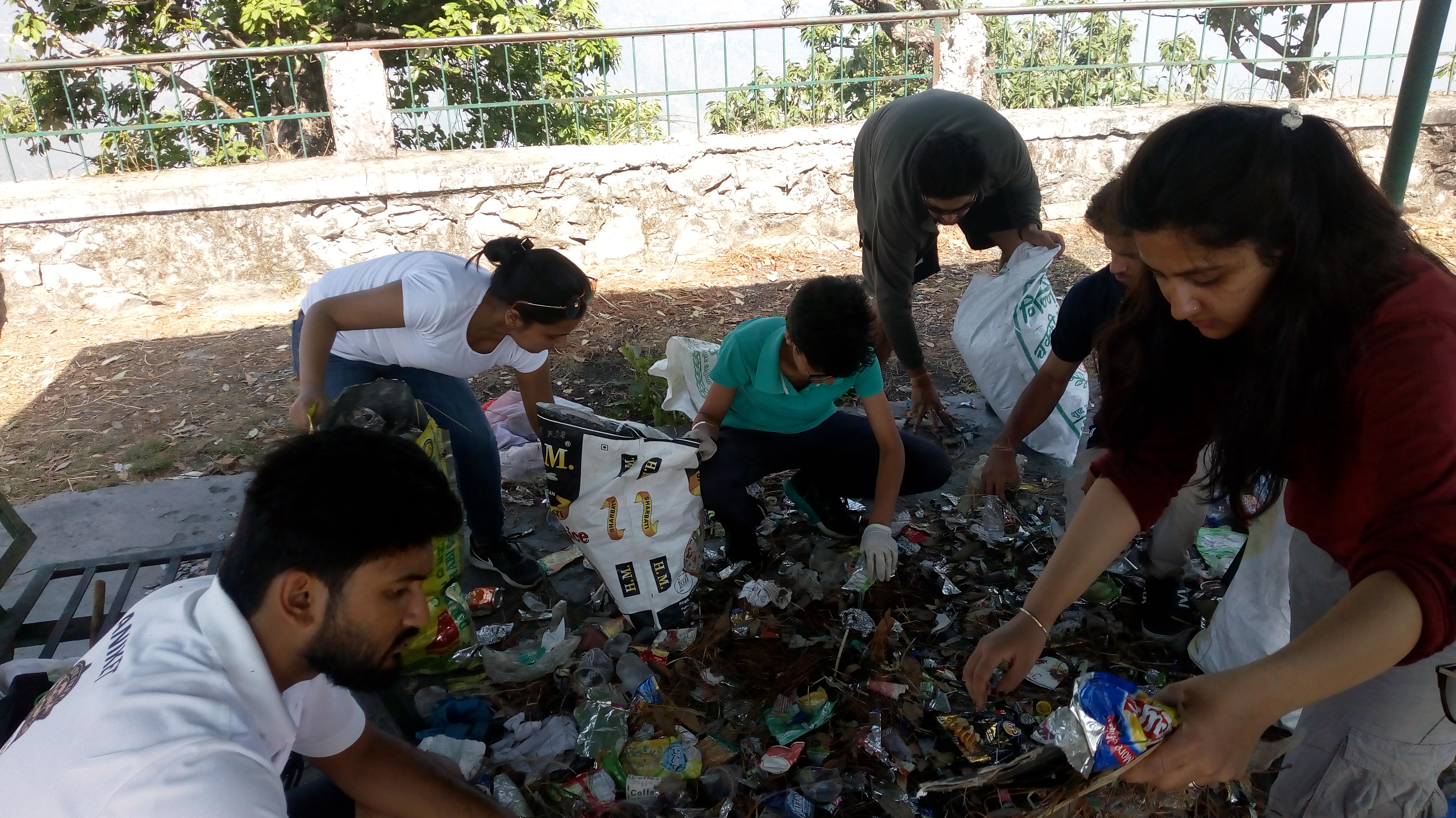
This cleanup activity gained huge appreciation on social media and now more people want to join in. We don’t want this to be a one-time thing but a habit. Hopefully, this activity creates a ripple effect and, in the future, we get more volunteers for such initiatives. These small steps taken to improve the environment create a major difference. Our future plans include oak plantation this monsoon, more clean up drives – the next scheduled on 22nd June – and awareness campaigns.
I want to thank and appreciate all the educated and aware volunteers who participated in the clean up – Rishabh, Ayushi, Kanika, Swarnima, Aniket, Arun, Alok and Priyank.”
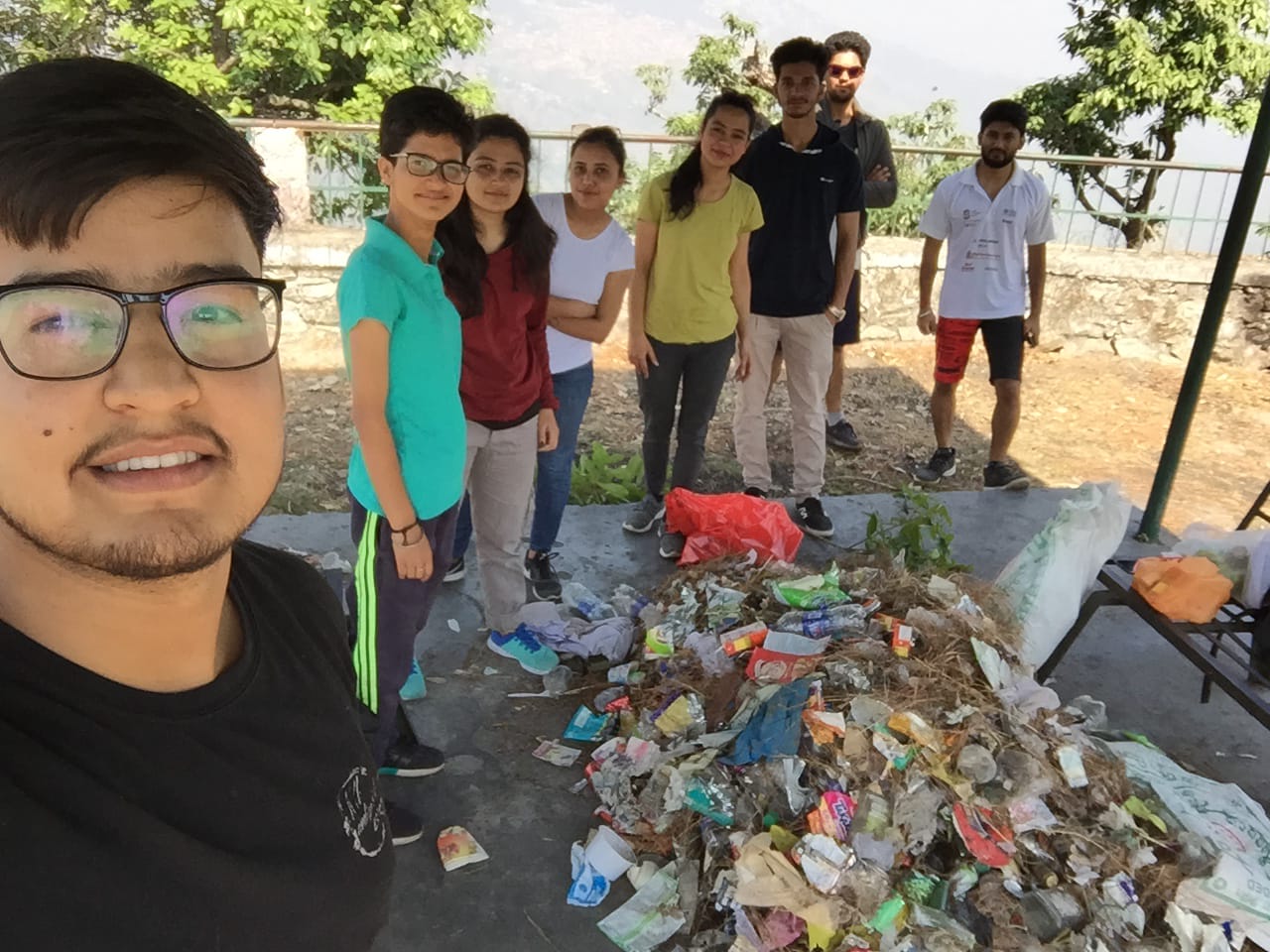
Did You Know?
According to a World Bank report the amount of solid waste that is generated on Earth will double by the year 2025 i.e, it is likely to increase from 3.5 million tons to 6 million tons per day. This means that a huge portion of the earth will be covered in litter. But what are we doing about it? Are we aware of our waste disposal and plastic consumption? In a study conducted across Indian metros, it was found that 90% of the people surveyed were are aware of the harmful effects of plastic but continued to use it. Another study reflects that 90% of the plastic ever made isn’t recycled and ends up as trash and litter.
Small Practical Steps For A Big Change
“It is the greatest of all mistakes to do nothing because you can only do little. Do what you can.” Sidney Smith
We’ve put together a list of simple lifestyle choices that can help you contribute to a better environment. Which of the following eco-friendly habits are you willing to adopt?
- Take public transport to work or carpool.
- Carry your own eco-friendly grocery bags.
- Take your own water bottle and refill it instead of buying bottled water.
- Segregate your trash at home.
- Don’t litter and pick up trash.
- Avoid single-use plastics.
- Swap disposable sanitary products with reusable options.
- Use cloth diapers instead of disposable nappies.
- Plant trees in monsoon and nurture them.
- Refuse, reuse and recycle as much as possible.
What other steps can one take to adopt a more sustainable and eco-friendly lifestyle? Leave a comment to let us know! We hope that you were inspired by this post.

